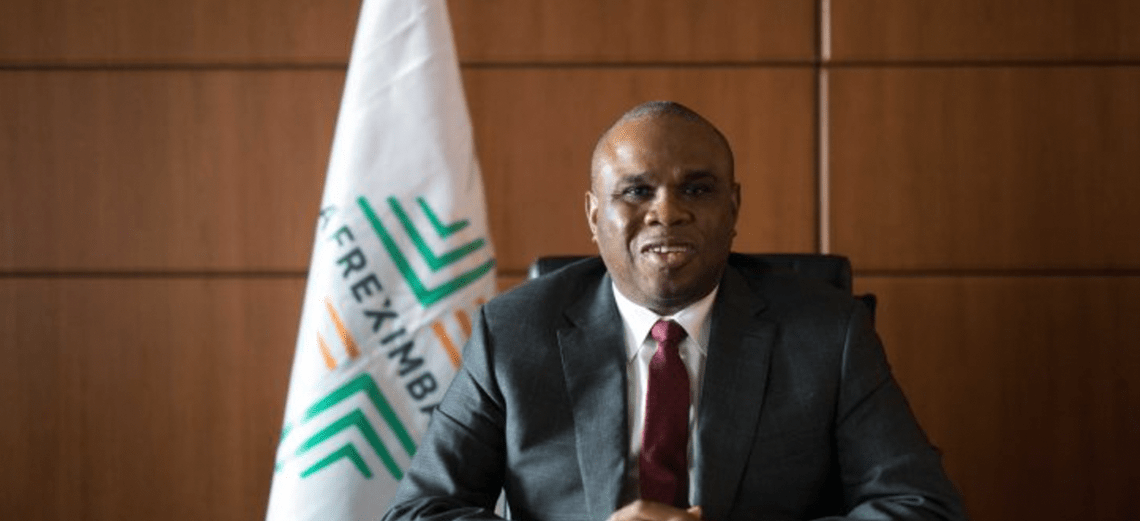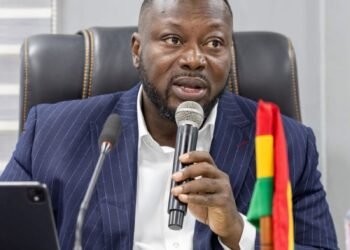The President of African Export Import Bank (Afreximbank), Professor Benedict Okey Oramah has disclosed certain factors that led to the bank’s rapid growth, and its expanding portfolio initiatives that can be adopted by banks to boost the industry back to its feet.
During an interview at the Bank’s headquarters in Cairo, Egypt, Prof. Okey Oramah divulged that Africa, like most of the rest of the world, is in the throes of the current cost and supply-chain crisis and battling to increase the volume and velocity of its trade. Hence, establishing new trading partners and consolidating and expanding older ties is the only way out. “This puts Afreximbank right in the centre of the continent’s development crosshairs,” he said.
According to Mr. Okey Oramah, Afreximbank put in its maximum best to deliver whatever it has promised to do, and as well ensured the satisfaction of customers and partnered membership countries always exceeded their expectation.
“We do what we say we will do, and we are clear by saying what it is we want to do. That helps to get things done, and people know what they are getting.
“We have earned the trust of our member countries. We have also demonstrated that Africa is not as risky as many paints it out to be. We have done things that moved the dial in so-called difficult countries, and we have not lost our shirt. Every day we go to the office, we know why we are there, and we give it our all.”
Professor Benedict Okey Oramah
Capital Adequacy
Without being able to control one’s capital, he argues, one cannot control one’s destiny. The bank today, he says has a pipeline of $40bn properly vetted and evaluated transactions. The total assets and guarantees have grown from $5bn in September 2015 to about $30 bn as per an investor note that was recently released.
“The Bank is currently on a capital raising exercise having raised two thirds of their target, which is $2.6bn of paid-in capital, or $6.5bn (including callable capital of $3.9bn). Most shareholders have given their support. Some countries have even paid more than what they had been allotted.”
Professor Benedict Okey Oramah
But Oramah rejects any notion that the Bank is growing too quickly. According to him as compared to its peers in other continents, Afreximbank is just playing a catch-up. “For a continent with a GDP of $2.5-3.5 trillion, the combined total assets of key development institutions on the continent are in the range of $80-100bn, which is small once the bank is compared to peers such as the Brazilian Development Bank, let alone the China Exim Bank that was established at the same time as Afreximbank,” he said.
Capital Is King
Touching on the need for banks to see capital as the king, Prof Oram mentioned that working capital is the cash a company must focus on and have on hand in the short term to keep the business running.
“If you do not control the capital, you are limited. Opportunities on the continent are well known. Those who take advantage of these opportunities are often not African. That’s because they control the capital and can take advantage of the opportunity.
”Being in control of one’s capital appears to be a central tenet of his thesis to drive economic independence.”
Professor Benedict Okey Oramah
He sees the retreat and divestments of foreign banks from the continent as an opportunity. It is key to have local ownership of banks because no African investment decision should be made in London, New York, Beijing, Mumbai or Zurich. “No one understands your market better than you do,” he points out.
That notwithstanding, Prof. Oram further noted that capital raise is critical to helping the banking and other financial institution grow and deliver on its mandate. Moreover, with more capital, a bank can double its balance sheet.
Prof. Oramah in his conclusion explained that he is happy with the current rating (Fitch upgraded the Bank’s credit rating to bbb) as it allows the Bank to take on risk and allows it to put its capital to good use. But he is not seeking to go much higher.
“If our rating is too high, it means we cannot operate the way we would like to and support our clients and Africa’s development the way they need us to. Also, we have made our business case clear to the ratings agencies. Every 5-year planning period, we all agree the optimal credit ratings levels to target, and we are guided by it.”
Professor Benedict Okey Oramah
Read Also : Ghana’s Automotive Industry Makes It To Becoming The Automobile Manufacturing Hub In West Africa

















